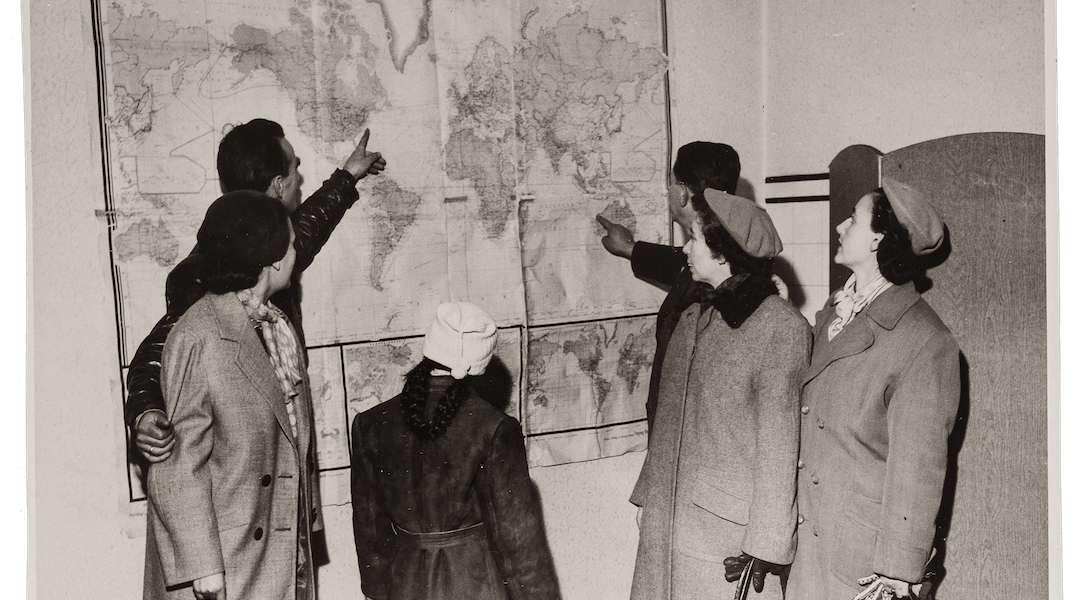Orthodox Rabbis Forbid Birthright Trips for Youths
Several of the world’s most prominent ultra-Orthodox rabbis are urging parents not to allow their children to participate in Birthright Israel, a multimillion-dollar program that offers free trips to Israel for young Jews.
Rabbis in the United States and Israel signed separate statements condemning Birthright, which is funded by Jewish philanthropists, Jewish charitable federations and the Israeli government. The rabbis accuse Birthright organizers of failing to uphold rules on kosher food and sexual modesty and of exposing children to improper ideas.
“Sacrileges to the Torah are told in these trips,” said the six Israeli rabbis in their statement, according to an unofficial translation from the Hebrew original. It appeared last week in the Brooklyn-based ultra-Orthodox weekly Yated Ne’eman.
“We forbid sending male and female students to those trips,” the Israeli rabbis said. “Those who follow us will have much naches [joy].”
The Israeli rabbis said that they were taking their lead from nine American rabbis who in a separate statement had “already made known their opposition to the Holy Land trips, known as Birthright.”
The American rabbis, in their statement, declared: “The organizers also try to inculcate in our sons and daughters opinions that stand in contradiction to our holy Torah.”
Birthright’s international director of marketing, Gideon Mark, rejected the criticisms in the two statements, which appeared jointly in an advertisement in the August 8 edition of Yated Ne’eman.
“Birthright Israel adheres to the kashrut rules,” Mark said. “Birthright Israel providers do not take the students to places that do not have kosher certificates.”
Sources familiar with the statements said that they were issued after a delegation of ultra-Orthodox girls traveled from the United States to Israel earlier this summer under the program’s auspices. Participants in Birthright are free to choose from about 25 trip providers, including the Orthodox Union’s National Council for Synagogue Youth and Mayanot, an organization with ties to the Chabad-Lubavitch chasidic movement. It was unclear who had organized the ultra-Orthodox girls’ trip.
The two rabbinic statements come in the midst of a dramatic revival in the fortunes of Birthright, which had experienced a sharp decline in participation during the past two years as a result of Palestinian violence. Participation this summer is up 70% compared to a year ago, with this summer’s total expected to reach 8,500 by the end of August. The North American contingent experienced the biggest increase, jumping from 1,500 to 5,500 participants.
Participants this summer came from 21 countries, included five that were represented this year for the first time: Bulgaria, Romania, the Czech Republic, Venezuela and the country that caused the most excitement, Cuba.
The Cuban Jews were the first to visit Israel as a group from the communist nation since it cut off relations with Israel in 1973, during the Yom Kippur War. Organizers said the trip became possible only after nearly a year of negotiations with the Cuban government. Cuban dictator Fidel Castro had close ties with Israel during his first decade in power, but since cutting ties he has maintained an intensely hostile stance.
Individual Cubans have visited Israel over the years, but never as a group. The eight Cuban program participants were accompanied by two adult chaperones to ensure that everyone returns home.
The program is expected to bolster Israel’s ailing tourism industry by $25 million over the course of this summer. El Al’s summer contract with Birthright is worth approximately $5.5 million, and with participants spending a total of 72,000 nights at hundreds of hotels and guest houses across the country, the Israel Hotel Association predicts that the summer influx will contribute approximately $13 million to the country’s hotel industry.
A survey of program graduates conducted last year by Brandeis University found dramatic increases in participants’ sense of identification with Israel and Judaism a year after returning.
Birthright officials said that about 30% of North American Birthright participants identify as Orthodox. Virtually all of this group is identified with the more integrationist world of Modern Orthodoxy.
Rabbi Tzvi Hirsch Weinreb, president of the Orthodox Union, declined to comment on how the edicts would impact on Modern Orthodox groups.
An ultra-Orthodox writer based in Jerusalem, Jonathan Rosenblum, said that the rabbinic statements were directed at ultra-Orthodox, or charedi, families.
The American statement was signed by the heads of several major ultra-Orthodox seminaries, including Beth Medrash Govoha in Lakewood, N.J., and the Mir and Chaim Berlin yeshivas in Brooklyn. The Israeli signatories included Rabbi Yosef Shalom Elyashiv, widely regarded in ultra-Orthodox circles as the most authoritative living arbiter of religious law.
“This is really a tempest in a teapot,” said Rosenblum, director of Am Echad, an Orthodox information center in Jerusalem. “It’s not the rabbis coming out condemning Birthright — they are not getting involved in the propriety or impropriety of the Birthright program, that’s not within the ambit of their concern. They were saying that it’s not appropriate for children from charedi homes in America who were going on the Birthright program. Their concern was that they were eating at hotels without mehadrin hechsher,” referring to an especially strict form of kosher supervision.
Most Israelis who keep kosher are satisfied with the state-sponsored rabbinic supervision provided by the Chief Rabbinate. But ultra-Orthodox Jews accept only the seal of approval from their own communal watchdogs.
Rosenblum, who is also a columnist for The Jerusalem Post, said an additional issue for the ultra-Orthodox rabbis was that “Birthright has a requirement that they meet with Israeli kids, which then puts them together with kids who are not from similar charedi backgrounds, which is a matter of concern.”
Mark said that Birthright welcomes all Jews between the ages of 18 and 26 who have never been to Israel on an educational trip. “We encourage those Jews who are as least affiliated as possible to get involved in Jewish life and come on their first educational trip to Israel,” Mark said. “We want to transmit the values of klal Yisrael, ahavat Yisrael and medinat Yisrael,” using Hebrew terms for Jewish solidarity, love of Israel and the State of Israel. “These are core values, and everybody can choose whether to join on these terms or not.”
The potential numbers of charedi young adults who would have otherwise taken part are too small to make a difference in the Birthright program, Rosenblum said.
“I’m sure Birthright couldn’t care less if no other charedi kids go on it,” Rosenblum said. “Most of these kids will come here to seminary; many of them have been here to Israel before. I’m sure [philanthropist and Birthright co-founder] Michael Steinhardt’s main task in life is not to bring charedi kids — who have a strong connection to Israel — to Israel. This is a non-story. The rabbis’ only concern in this matter is charedi children.”
















